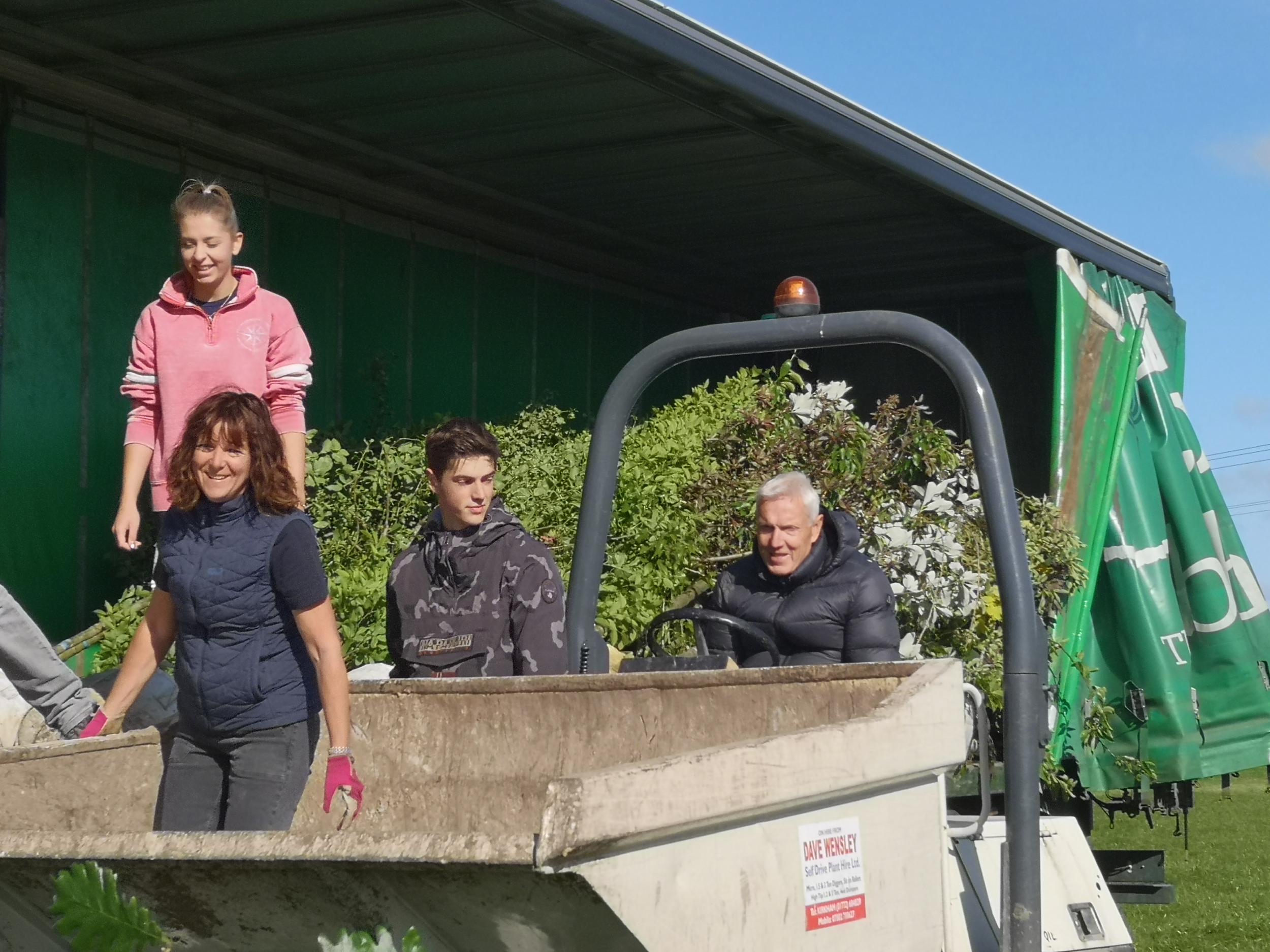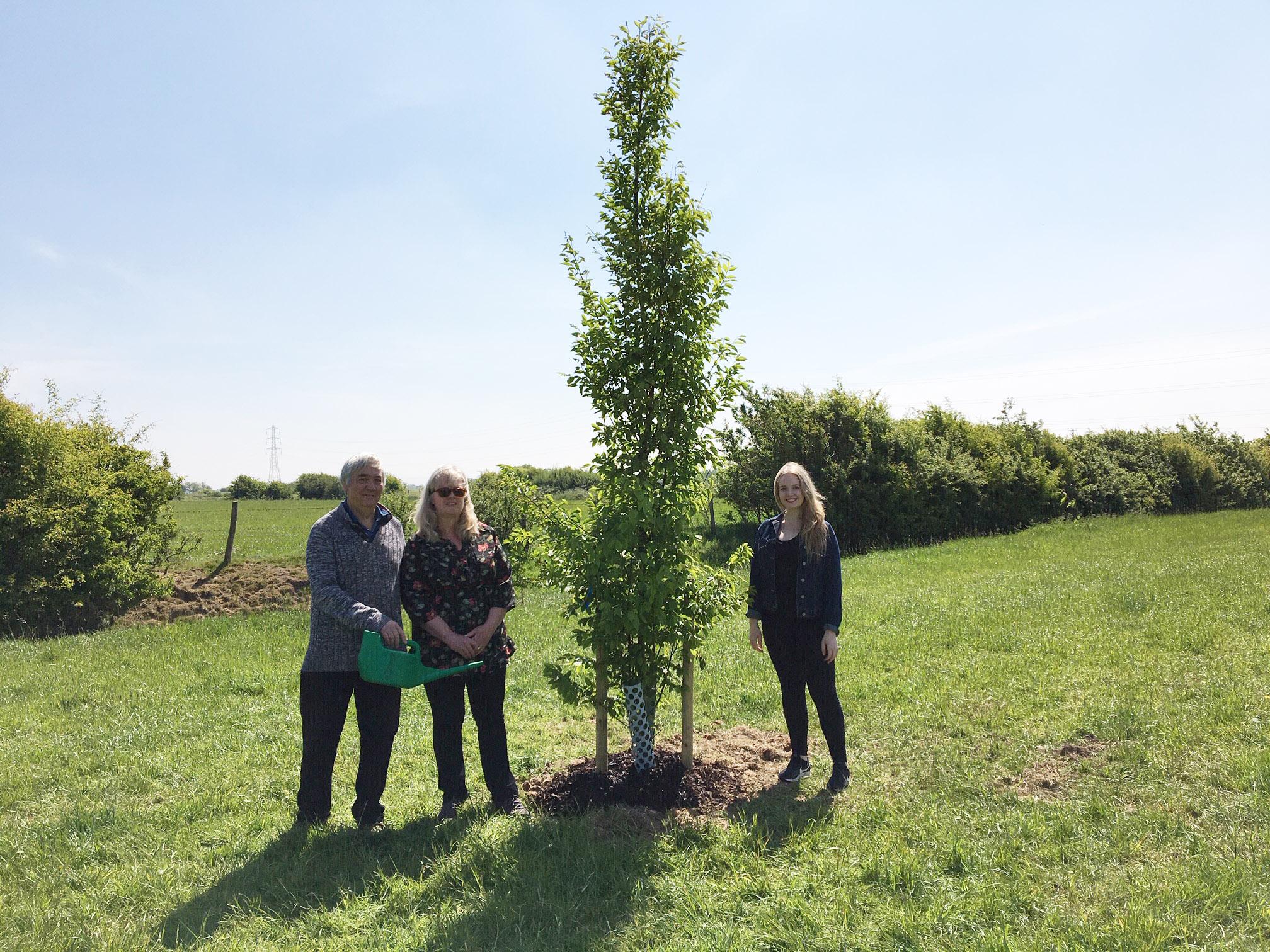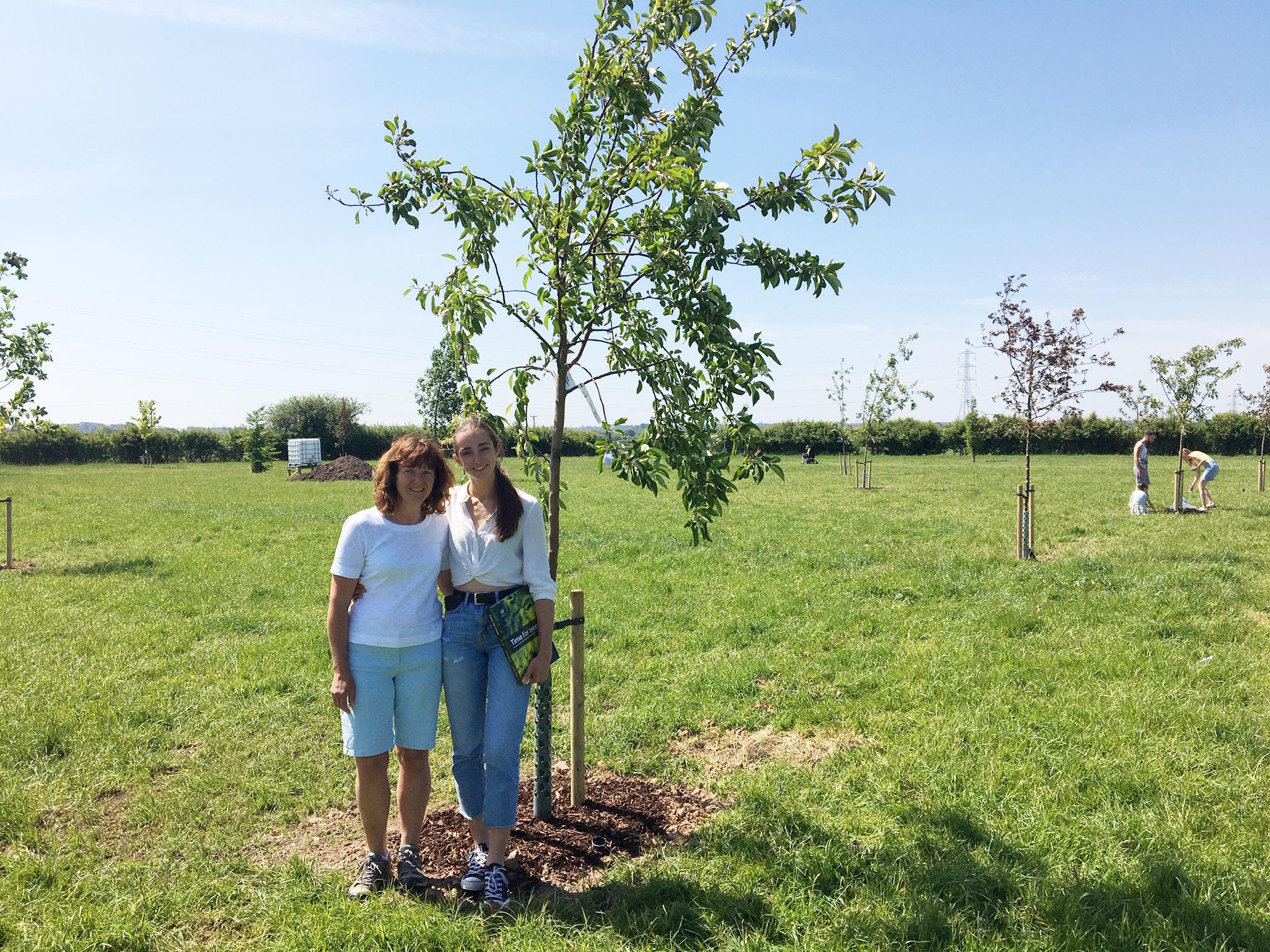‘A forest full of love’: The memorial woodland offering bereaved families the chance to say a final farewell to loved ones lost to coronavirus
Colin Drury travels to Wrea Green in Lancashire, where one family's selfless decision to turn a housing development plot into a wildflower woodland is offering people the opportunity to honour those who lost their lives to Covid-19


When her best friend died in April following a long battle with cancer, Sue Ybarras found herself facing a devastating reality: the coronavirus lockdown meant she was not allowed to go to the funeral.
“It was immediate family only,” the 52-year-old tells The Independent. “It was hard enough not being able to see her in those final weeks – not being there when she was getting worse – but to not get a chance to say goodbye after she was gone, it was heartbreaking.”
Today, in a field in Lancashire, Sue is, in some small way, putting that right.
She is planting a tree dedicated to her friend – Sue Fitton from Somerset – at what will become the UK’s first coronavirus memorial forest.
This five-acre site, in the village of Wrea Green, near Preston, had until earlier this month been vaguely earmarked for a housing development.
But the owners, a local family, have now decided to transform it instead into a wildflower woodland where those who have lost loved ones to Covid-19 – or been prevented from saying a proper goodbye because of the resulting restrictions – will be able to plant a sapling in their name.
By the time it is finished, the plan is that as many as 1,500 people could be remembered here, each with their own tree or shrub. Already about 130 young birches, cherry blossoms, crab apples, rowans and maples have been bedded in. A central oak will eventually be adjourned by a small managed garden dedicated to local NHS workers. A pre-existing pond is being turned into a duck lake. If demand is there, a neighbouring field – also five acres – could be given over to the project too.
Pertinently, the trees have been chosen so they will stand for generations: a pocket of rewilded Lancashire, set aside to remember how, at a point of crisis, love overcame isolation.
“It’s perfect for my friend,” says Sue, who runs a guest house in nearby Lytham St Annes on the Fylde coast. “She loved nature – we actually met when we were both working in a garden centre so this feels especially fitting. She’d think that planting a forest in response to a virus was perfect.”
Nor would Sue, it seems, be the only one.
Since Andy Bradshaw, the landowner, first announced his plan on Facebook earlier this month, he has been inundated with people wanting to have loved ones remembered here.
About 300 families have either already planted saplings over the last fortnight or are pencilled in to do so over the coming weeks. They range from locals who have lost members of their household during the pandemic to one person whose father died in Poland but who hasn’t been able to return home since. She will plant a sapling at her own private service for him here instead.

For Jacky Ramsden, bedding in a rowan today, it is husband Paul who she is honouring.
He was rushed to Blackpool Victoria Hospital on 22 March after falling ill with Covid-19 following a holiday in the Canary Islands. He died five days later. Jacky didn’t see him at all in-between. “He was unconscious when they took him,” the 63-year-old retired research manager says. “I couldn’t even tell him I loved him, although he knew well enough.”
The only people who could attend the small funeral service were nine members of the family – all sat two metres apart.
“We couldn’t even have a cup of tea afterwards,” says Jacky. “We couldn’t even hug. I had to come home alone and go straight back into isolation.”
Planting her tree, she says, will help her cope with both the overwhelming grief and surreal nature of the situation. Paul, a retired aeronautical engineer, was 80 but still fit as a fiddle – a keen cyclist and gym-goer – and she never imagined him being taken so soon.
“I’ve been in shock,” she says. “I don’t know if I’ve started to process it all.”
There will, she says, be a proper memorial service for him when the pandemic is over. But, in the meantime, having his name become part of this wood feels somehow uplifting. “He would have loved it here,” she says.

It is something the Bradshaws have heard a lot over the last few days.
They themselves run a family building and property development company, and had bought this vacant land a couple of years ago with the plan of eventually turning it into new homes.
But, after Andy was diagnosed with Covid-19 following a skiing trip in Austria, he came up with the idea of creating the wood instead.
“Dad’s known for spontaneous – perhaps I could say slightly off-beat – ideas,” says 25-year-old daughter Ashley, who works for the family firm and who has become de facto site manager of the nascent wood. “I think this may fall into that off-beat category.”
Andy’s own battle with the virus wasn’t too serious in the end, says wife Angela. “One moment he’d be acting like he was suffering the worst illness in the world and the next he’d be joking around,” the 58-year-old says. “I thought he was just being a typical man but, apparently that’s really how this illness makes you feel.”
She considers this for a moment: “Perhaps creating this wood shows it played on his mind more than we thought.”
Practically, mourners are asked to pay up to £150 to cover the cost of their tree. After that, the site will be lightly managed by the family themselves with access left permanently open for visits.
“I’m thinking you could park at the Grapes Hotel, enjoy a pint and some food, and walk three or four minutes to the field,” said Andy in an initial Facebook post. “It’s south facing, beautiful and peaceful.”
Speaking later, the 59-year-old adds: “People can come, spend some time, just reflecting on the good things of their life.”
Reflecting, indeed, is what Luke and Chloe Levy are doing today.
He’s a prison officer and she’s a pharmacist, and the couple – along with three children, Ella, Lilly and Samuel aged between 12 and four – are planting a tree for Luke’s granddad, Albert.
The 95-year-old was still living independently in London’s East End when he passed away earlier this month with suspected coronavirus. He wasn’t tested but had a lot of the symptoms: shortness of breath, a cough. “It came on so quickly that he died at home,” says Luke, 31, today. “Perhaps it’s better that way.”
The family, who themselves live in Wrea Green, are planting an apple tree because they have happy memories of spending time with Albert in his allotment. When they heard of the wood being created, they thought it was just right. “It’s going to be a forest full of love, isn’t it?” says Chloe.
They are among the last family to plant on the day The Independent visits.
As Angela and Ashley do a last walk round, they reveal that, as it turns out, it’s not just families impacted by the pandemic who have been in touch about the wood.
An 85-year-old local woman has asked if she could have her own tree when she passes away. “I don’t think she plans to go anytime soon,” says Angela. “But she wanted a little place in the village where her family could come and visit her. Of course, we said yes. It’s hard to refuse a request like that.”
Join our commenting forum
Join thought-provoking conversations, follow other Independent readers and see their replies
Comments